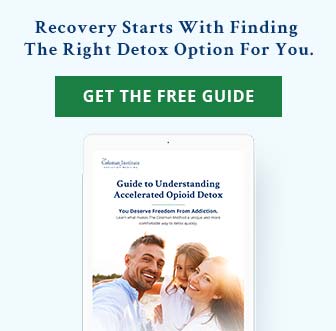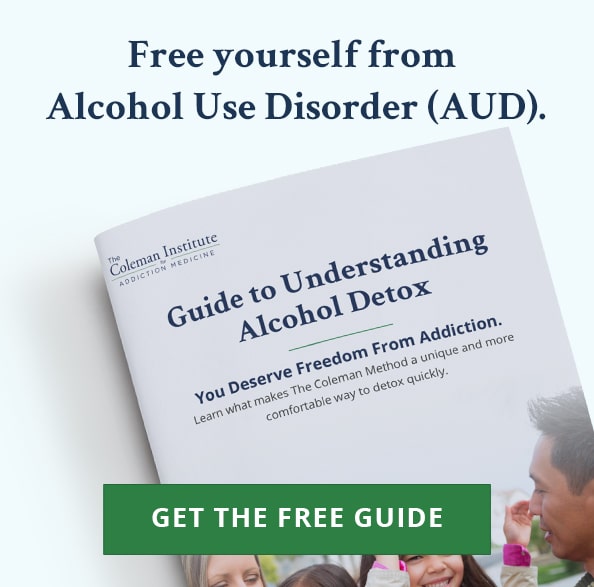
Frequently Asked Questions
1. Where is the Coleman Institute for Addiction Medicine located?
Our headquarters are in Richmond, Virginia with additional locations across the United States. Please contact us to find treatment near you.
2. What types of addiction and dependency does the Coleman Institute treat?
We offer treatment options for opiate dependency, including fentanyl, heroin, and prescription drugs. We also offer detox services for Suboxone®, methadone, benzodiazepines and alcohol.
3. How does the Coleman Institute typically detox patients?
We use an Accelerated Detox Technique combined with Naltrexone therapy to give our patients the best possible chance at recovery. This is typically an outpatient treatment that lasts from 3 – 8 days, which we customize to each patient’s needs. You can learn more about our Accelerated Opiate Detox and Alcohol Detox approaches.
4. What is Naltrexone therapy?
After a patient successfully completes their detox, we use Naltrexone therapy to help reduce the risk of relapse. Delivered as either a long-lasting injection or a small, time-release implant, Naltrexone helps reduce the cravings that a patient would typically have during recovery. Visit our Naltrexone Therapy page to learn more about this revolutionary treatment.
5. How much does an Accelerated Detox cost?
The treatment cost largely depends on the type of drug a person is using, their medical history, as well as which location they will be visiting. We offer financing for each of our treatment options to make detox as financially feasible as possible. Certain offices are in-network with many commercial insurance plans, including Blue Cross Blue Shield, Tufts, and Humana commercial plans.
6. Is Accelerated Detox painful?
Unlike self-detoxing or ultra-rapid detoxification, our Accelerated Detox approach is relatively comfortable. Through customized medications and hands-on support, we help our patients stay comfortable and manage their withdrawal symptoms. You can read more about our detox process for each type of dependency:
- Accelerated Opiate Detox
- Heroin Detox
- Prescription Drug Detox
- Fentanyl Detox
- Chronic Pain Management
- Suboxone® Detox
- Methadone Detox
- Alcohol Detox
7. Why does the Coleman Institute no longer offer Ultra-Rapid Opiate Detoxification (UROD or URD)?
Our founder, Dr. Peter Coleman, performed over 300 URD procedures in a hospital and had no major complications. However, we found that this technique:
- Is very expensive
- Can be uncomfortable for patients
- Includes serious health risks
Because of these factors, we developed a new technique known as Accelerated Detoxification, or The Coleman Method. This treatment type is just as successful as a URD, but avoids its problems — and doesn’t require hospitalization or the risks associated with general anesthesia. We have now performed thousands of Accelerated Detoxifications since 2001 and find the technique is vastly superior to our experience with URD.
8. What happens after a patient leaves the Coleman Institute?
We know that recovery is a lifelong process and getting through withdrawal is just the first step. That is why our programs in Richmond, VA, Wellesley, MA, and Willoughby, OH also include 6 months of supportive case management and naltrexone therapy. We help each patient create a customized recovery plan. Patients are also welcome to call us anytime (877-773-3869), and we’ll respond as soon as possible. Our mission is to help people get into long-term recovery and stay there.



